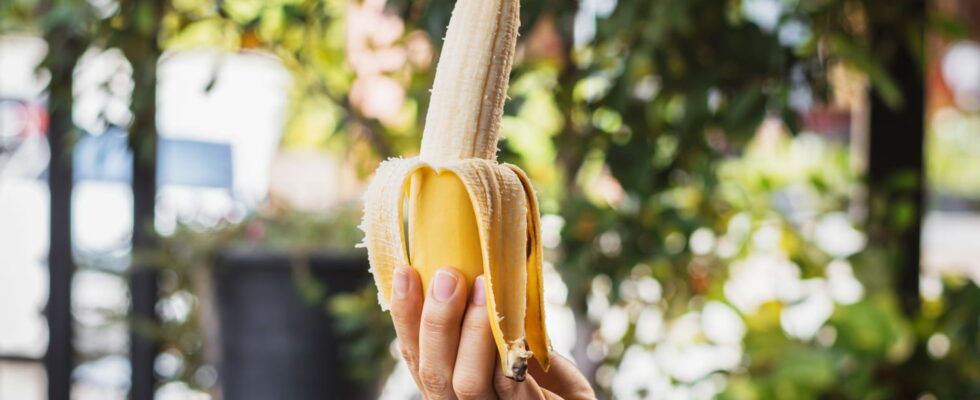The banana is undoubtedly the fruit richest in starch. As it matures, this starch is transformed into fructose and glucose which are simple sugars. However, its carbohydrate content remains the same; what changes is the speed of absorption of its sugars. “Depending on its maturity, the glycemic index of the banana will change”explains Marjorie Decloquement, phyto-aromatologist specializing in adaptive functional nutrition and member of the Medoucine network.
For example, green bananas have a lower glycemic index than ripe bananas. This means they release glucose more slowly into the bloodstream, which can help regulate blood sugar levels. They also contain more resistant starches, a form of fiber that can support digestive health by feeding good gut bacteria. “These starches have a prebiotic effect for our microbiota. They promote the production by our bacteria of 3 short-chain fatty acids (butyrate, acetate and propionate) which help nourish and provide energy to the cells epithelial cells of the colon.” They also have anti-inflammatory effects and promote the barrier function of the intestine by strengthening the protective mucus in the intestinal lumen.
For its part, ripe banana raises blood sugar levels more but has a higher antioxidant content. “It is also interesting for its mineral contributions, notably potassium, copper, manganese, but also in vitamins from group B and C, explains the therapist. It also contains fiber but also some amino acids such as tryptophan, a precursor of serotonin. It’s finally a source of dopamine to provide energy and boost your morale!” Ripe bananas are also sweeter, which can satisfy sugar cravings naturally… and thus replace a more indulgent and caloric snack.
The ideal is to consume between 7 to 12 grams of resistant starches per day. “They are found in green bananas but also in legumes, whole grains, tuber vegetables. It is also advisable to consume at least 25 grams of fiber per day and to vary the prebiotic effect with fructans and beta-glucan which are found in garlic, artichoke, dried banana, chicory root, raw onion, leek, Jerusalem artichoke or even in barley, oats, rye and sorghum.”
